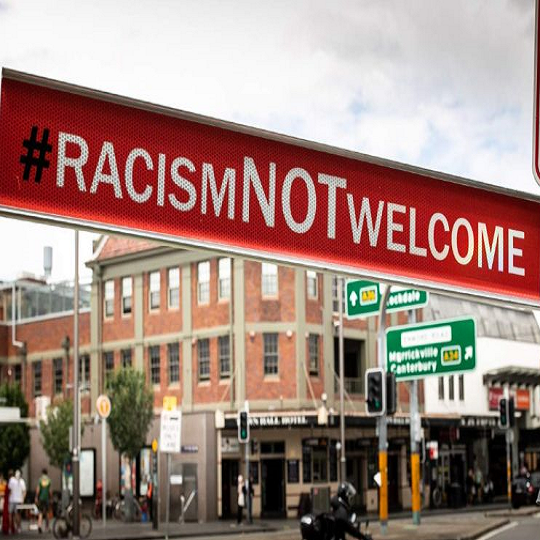Eighty years after their service in the skies of occupied Europe, two Air Force aviators have been posthumously awarded the Commendation for Gallantry.
Pilot Officer Justin Mulligan and Warrant Officer Billy Kinloch flew Mosquito fighter bombers together on 60 missions with 464 Squadron.
This included the daring daylight raid on October 31, 1944, that destroyed the Gestapo headquarters in the Danish town of Aarhus.
Flying a 1900km round-trip at wave-top height across the North Sea, Allied Mosquitos delivered bombs with such precision that 64 Squadron was nicknamed ‘the Gestapo Hunters’.
Tragically, Pilot Officer Mulligan and Warrant Officer Kinloch would not survive the war to see their loved ones and tell their story.
Early on January 13, 1945, their Mosquito crashed near the German border with Belgium.
Both men were 22 years old.
A lifetime after the war’s end, relatives of the pair accepted posthumous Commendations for Gallantry on their behalf at Government House in Sydney.
Anne Burton is the niece of Warrant Officer Kinloch, and accepted his award on May 21, 2024.
Justin Newberry is the nephew of Pilot Officer Mulligan, and accepted his uncle’s award on September 24, 2024.
The commendations recognised acts of gallantry in action over two tours of operational service with 464 Squadron.
Prior to the war, the men grew up in distant corners of regional New South Wales – Justin Mulligan in Guyra, and William ‘Billy’ Kinloch in Leeton.
“Billy was a keen cricketer and swimmer in Leeton growing up, and after primary school in Leeton he attended The Scots College in Sydney for five years,” Mrs Burton said.
“He returned home after the Leaving Certificate and joined the family business ‘Kinloch Bros Hardware’.
“It was the intention that Billy would assume leadership of the business in the ensuing years.”
‘I was elated that after all those years, they were to be recognised.’
Mr Newberry said his uncle Justin Mulligan worked as a woolclasser and grazier.
Both men enlisted in 1942 – Kinloch in April, and Mulligan in June.
“On 16 December 1942, [Justin Mulligan] enjoyed embarkation leave and Christmas with his family in Guyra, and that was the last time they saw him,” Mr Newberry said.
“He left on Christmas Day.”
In 1943 they each sailed to Canada for advanced training in the Empire Air Training Scheme – Mulligan as a pilot, and Kinloch as a navigator.
The pair first met in England in early 1944 when they began training to fly the DeHavilland Mosquito.
In mid-1944 they joined 464 Squadron at RAF Thorney Island on the English Channel.
The squadron mostly flew night-time attack missions against German transport vehicles and supply areas, supporting the Allied liberation of France.
Powered by two Rolls Royce Merlin engines, the Mosquito was a perfect aircraft for long-range precision attacks on high-value targets like headquarters, barracks and train yards.
“Justin went from putting around the farm on a tractor to flying dangerous missions at low level in one of the fastest planes in the world,” Mr Newberry said.
“Not bad for a bloke from Guyra.”
Allied Mosquito crews who bombed the Gestapo Headquarters in Aarhus were later gifted gold cufflinks by the King of Denmark in gratitude.
‘I am also very grateful for the work of the Honours and Awards Directorate who helped make this award possible.’
After completing a flying tour of 50 missions, Mulligan and Kinloch had the choice of becoming instructors or flying another tour.
They both stayed.
At 3.15am on January 13, 1945, they left on a mission to strike German ground forces withdrawing from the Allied advance through Belgium.
Their Mosquito never returned, likely shot down by an enemy nightfighter aircraft.
Three years later, their bodies were found and interred in a war cemetery at Rheinberg in Germany.
Mrs Burton was born after the war, and said she was always aware of the impact her uncle’s death had on her grandparents.
“They lived for three years after the war hoping and wishing their only son was interned or alive somewhere in Europe,” Mrs Burton said.
“Alas it was not to be, and grandma and grandpa were forever sad over this fact.
“Although it was always a sombre occasion on Anzac Day, my grandma and my parents were always very proud and humbled for what Billy did in World War 2.”
Several 464 Squadron aviators received Imperial Awards like the Distinguished Flying Cross (DFC) for their service.
Mr Newberry believes the squadron’s relocation to France in February 1945, followed by the war’s end, led to Mulligan and Kinloch’s service not being likewise awarded.
“I started to ask questions in 2017 of the Honours and Awards about the possibility of having Justin Mulligan and Bill Kinloch awarded the DFC, which their families were told they had earned,” Mr Newberry said.
The Directorate of Honours and Awards researched the pair’s service, and recommended the Commendation for Gallantry be awarded.
“I was elated that after all those years, they were to be recognised,” Mr Newberry said.
“I know that Justin Mulligan would have appreciated being recognised, [and] I am proud to have achieved this outcome for him.
“I am also very grateful for the work of the Honours and Awards Directorate who helped make this award possible.”








